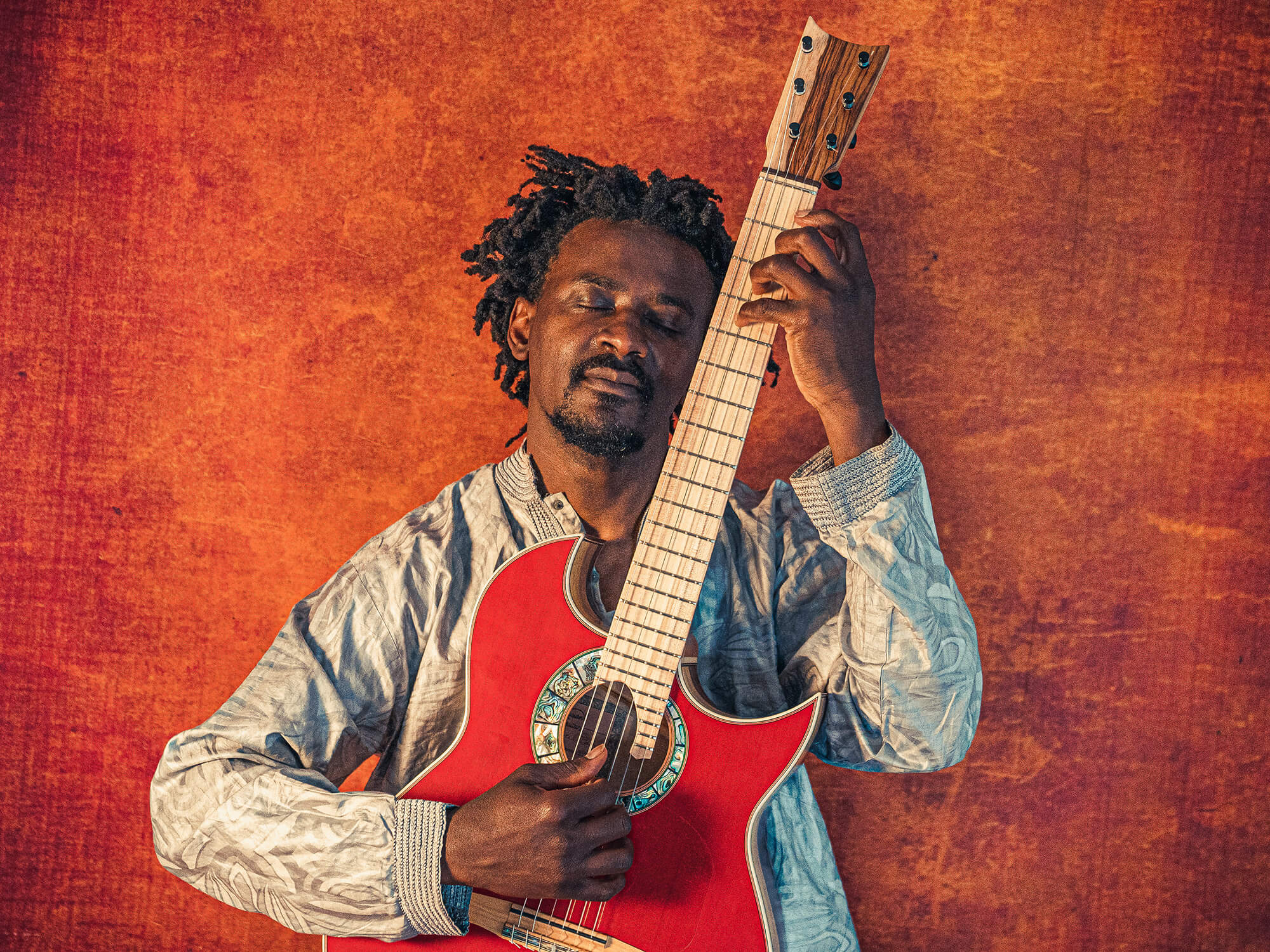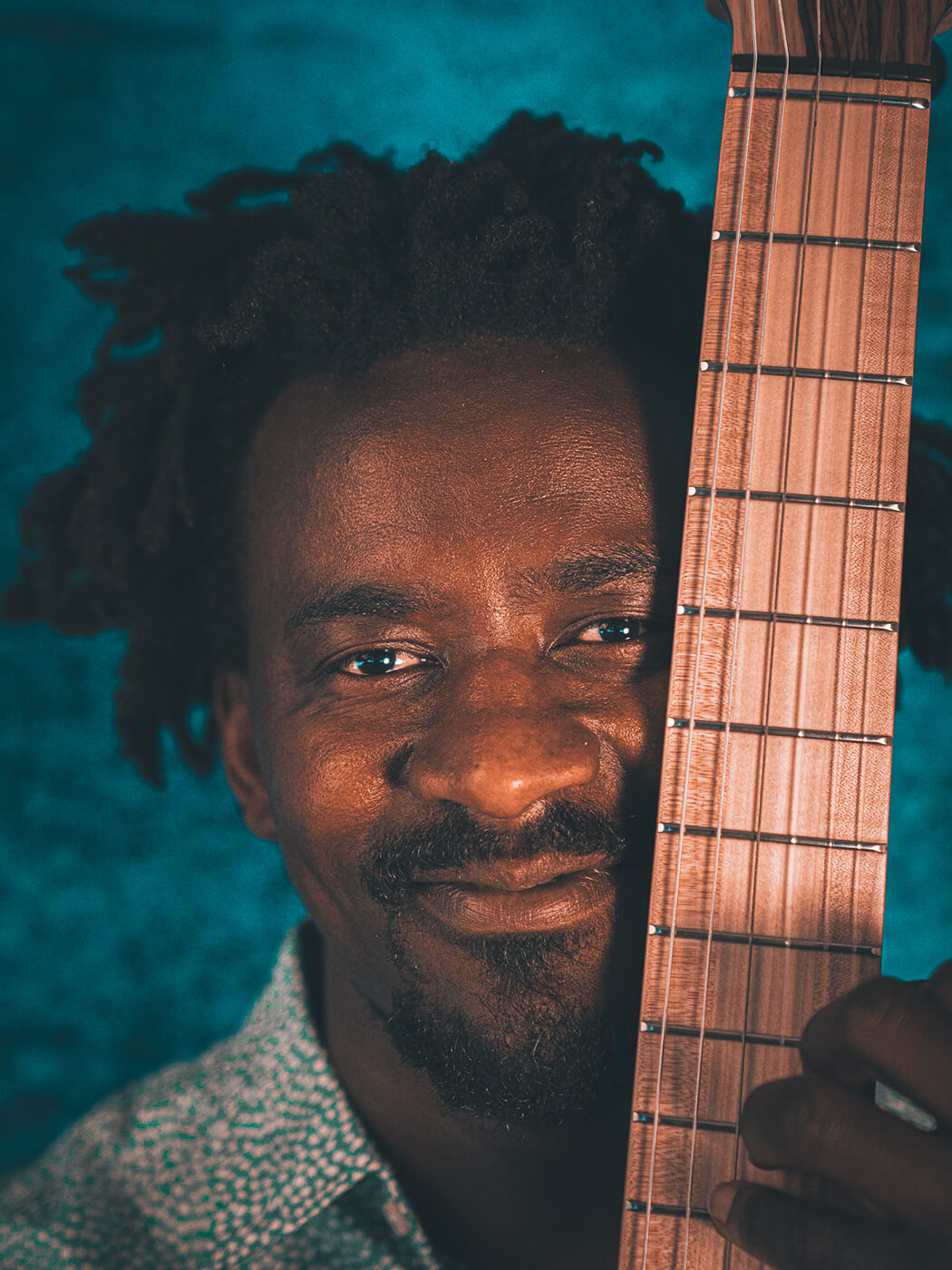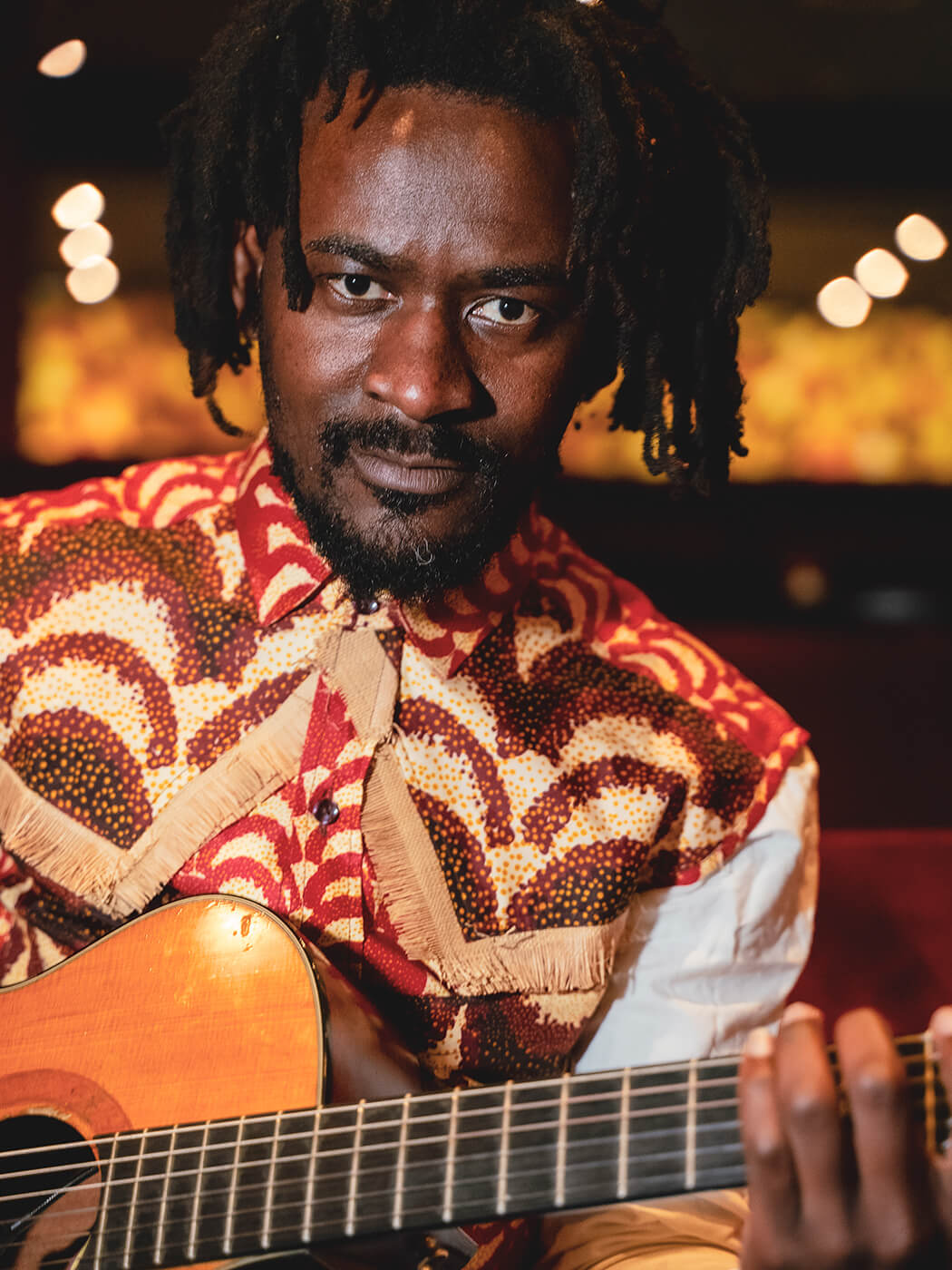Related Tags
Guitar Tales: How Niwel Tsumbu is reimagining Congolese folk songs with his polyphonic guitar fusion
In the latest installment of his column on the most exciting new faces in African guitar, Deo Salvator talks to Ireland-based nylon-string savant Niwel Tsumbu.

Image: Press
Based in Ireland, Niwel Tsumbu wields an exhilarating guitar style that pulls from jazz, classical, rock, folk and rumba. At times, Tsumbu’s music is a well with deep emotions, drawing joy and sadness from universal human waters. At others, it’s a high-tech vehicle flashing with excitement across nations, continents, and the cosmos.
Growing up in Kinshasa, Tsumbu was first exposed to traditional Congolese music at church. At the same time, he was absorbing western classical composers such as Beethoven and Vivaldi over the radio. At the age of 16, he took up the guitar and quickly found that he had a prodigious ability to play traditional soukous and rumba styles. At 17, his teacher Crispin Ngoy introduced him to jazz.
“I don’t think of styles when I play or listen to music,” Tsumbu says. “All music is just sound. It is like water for me: the same that falls from the sky becomes the sea, the river we drink, shower in and so on. Everything that I have heard, from traditional Congolese music to classical, jazz, rock, pop, metal, has influenced me. I like it all, and it is all part of my culture as a citizen of the universe.”
Against his family’s wishes, In 1997 Tsumbu secretly enrolled at a music college but he did not like it and only stayed for a year . His passion saw him walking for hours each day just to listen to music. But at the time, he didn’t own a guitar.

In 2004, Tsumbu relocated to Ireland, and founded his band in 2007. This 10-piece outfit began touring the country performing his Big Bang Symphony, and he began an important long-term collaboration with percussionist Eamonn Cagney. The pair released The Art of the Duo this year, a record featuring a number of African musical traditions combined with classical guitar harmonies with a sprinkling of Congolese and East Africa in the mix too.
“I love it because it’s a nylon-string guitar but not a classical or flamenco guitar,” he says of his approach to the instrument. “A lot of people think I play classical or flamenco but the reality is I don’t. I play nylon-string guitar because I love its sound with normal tension on some D’Addario strings.
When it comes to specific instrument, Tsumbu has a deep love for his Taylor NS32-CE, the oldest guitar out of a few that he uses, though it’s starting to be supplanted by newer instruments.
“I have had a deep love of nylon-string guitar ever since I heard the great Brazilian guitarist Baden Powell on a tape that I owned many years ago,” he explains. “Although on this recording, I am using a Spanish guitar, it’s my newest guitar. I am still not used to it that well, but it served very well on the recording.”

Re-imagination
Tsumbu recently began using Instagram to post music content, including guitar tips, and his posts have received a rapturous reception. “It’s growing very fast,” he says. “I am getting thousands of followers weekly. It’s amazing.”
“It turns out the lockdown was very creative for me also on social media. Not playing concerts gave me time and space to think more about social media, which I didn’t use much before. I started being active on Instagram and now a lot of my followers are actually learning from the tips I share and sending me clips of them playing it. I love seeing those. It’s incredibly gratifying. Some of them are getting in touch for one-on-one lessons on Zoom!”
Now, fresh from playing on Rhiannon Giddens and Francesco Turrisi’s Grammy-winning album They’re Calling Me Home, Tsumbu is set to debut a series of new arrangements based on traditional Congolese songs, which he began working on during the pandemic to help keep his mind sharp. The first of them, Kanzenzenze, came out on July 4.
“It is something that I always wanted to do but didn’t get time to do until the whole world came to a standstill in 2020,” he says. “The first one, Kanzenzenze, is a very simple childlike melody, usually sung acapella or with a drum. In its core, it’s a simple Africa singsong melody. I have applied some light modern harmony that I have learnt in my music making experience so far.”

The keystones of Tsumbu’s new arrangements of African folk songs are his sense of rhythm, his virtuosic playing, and his thrilling improvisations, all of which he was able to apply to the song because of its little-known nature. “Nobody really knows the origin of Kanzenzenze, he says. “The version I am singing is in Tshiluba, one of the many Congolese languages. It is believed to be an ancient song about 10 fingers and 10 toes.’
Kanzenzenze evokes youthful days spent playing with friends, and explores how childhood memories can comfort us throughout our adult lives. “It’s a song we’d sing as kids while playing a game. You sit close to each other in line, pointing at your feet, singing, while counting your feet with your fingers. Whoever the last note ends on, he or she is out.”
Tsumbu’s version of the song is stripped down, bringing voice and melody to the fore. Accompanying its singsong melody is Tsumbu’s intricate nylon-string guitar, which subtly casts the song in shifting harmonic lights. “I could have added many other instruments but I refrained,” Tsumbu says. “Because of the lockdown, I spent most of the last two years playing and singing by myself, so I felt like that should be reflected in the music.”
Whether playing rumba or jazz, plucked nylon or amplified electric, Tsumbu’s intricate guitar work always invites repeat listens.
For more, follow Niwel Tsumbu on Spotify.
